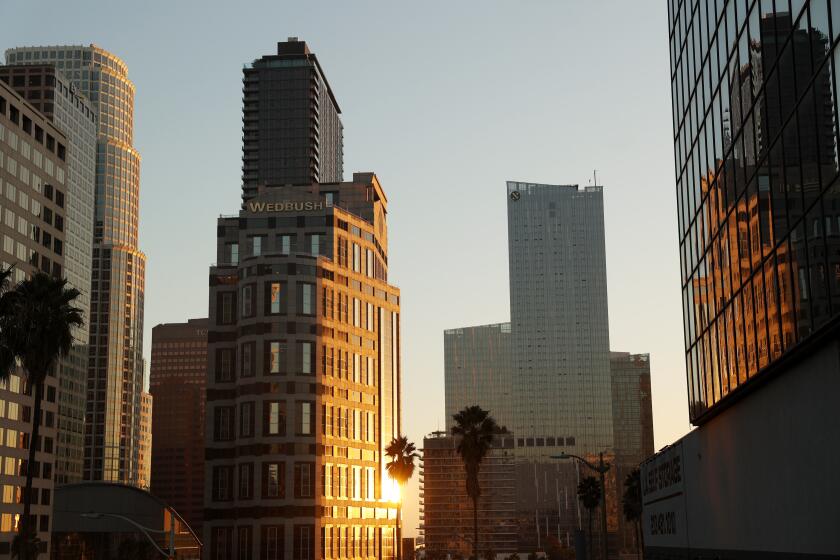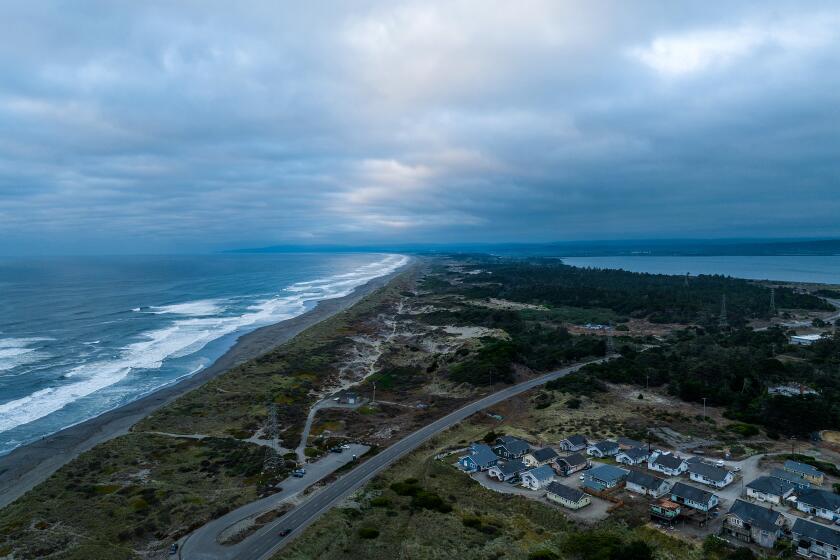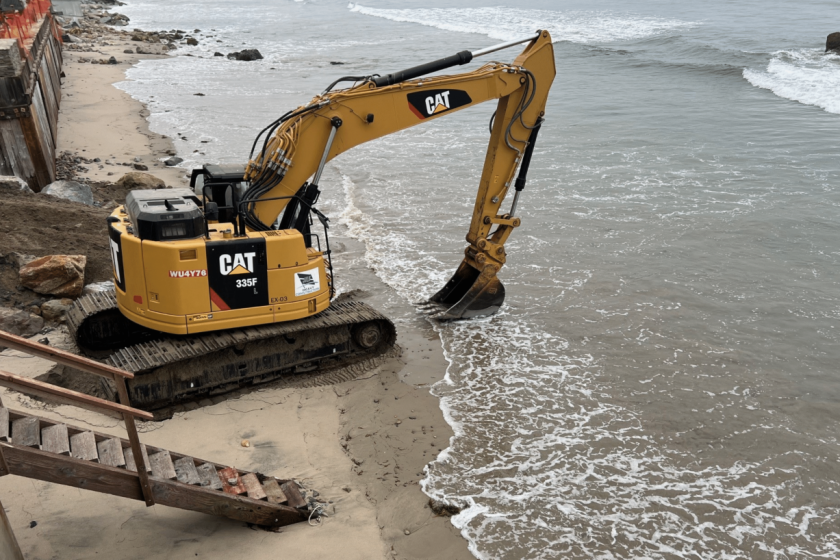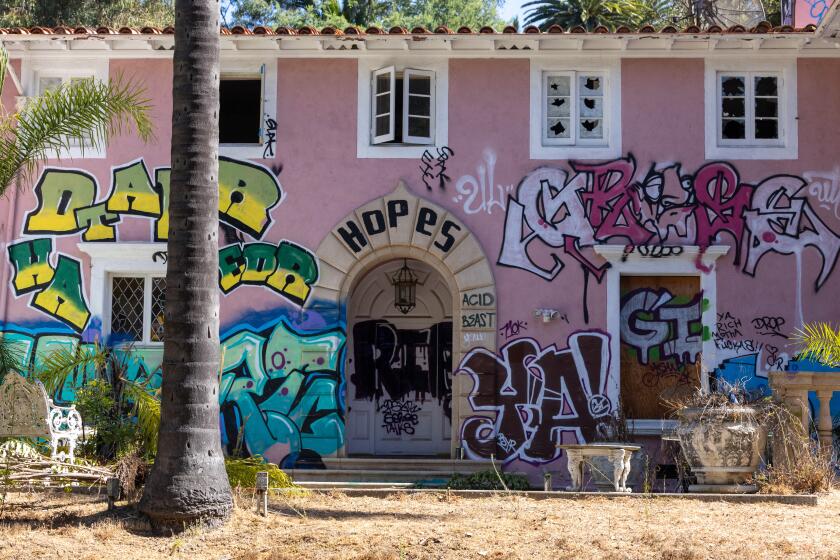Ma Maison Wins Permit for Liquor
It was 9:20 p.m. and a seven-hour public hearing on the Ma Maison Sofitel Hotel was winding down.
A weary member of the Board of Zoning Appeals rested his chin in the palm of his hand. An attorney for the hotel removed his glasses and rubbed his eyes. A water pitcher and coffee pot were empty.
Harald Hahn, president of a group of homeowners who live near the hotel, walked slowly toward the podium. The board had stopped taking public testimony half an hour earlier, and Chairwoman Ilene Olansky reminded Hahn that he could not speak except to ask a question.
‘Like to Make a Statement’
“I am not going to ask anything,” Hahn replied angrily. “I would like to make a statement.”
“No!” Olansky protested. But Hahn continued to talk over her.
“Since it appears that the board is granting everything that the (hotel) wants, we would like to recede from our request to close the terrace at 10 o’clock,” said Hahn. His group had requested that the hotel’s outdoor restaurant close at that hour to control late-night noise in nearby neighborhoods.
His voice now swelling with bitterness and sarcasm, Hahn sneered, “We . . . feel this (terrace) may be the only place we will be able to enjoy ourselves in this area.”
It was the end of a long and disappointing day for Hahn and other homeowners near the $41-million luxury hotel, which is being built across from the Beverly Center mall on Beverly Boulevard.
The board was considering a request from the hotel for a permit to serve alcoholic beverages, and the residents had mounted a formidable campaign to force concessions on parking and other issues from the developers in exchange for the permit.
Campaign Collapsed
But by the close of the Tuesday night hearing, the campaign had all but collapsed. The board was about to grant the permit without imposing some key conditions demanded by the homeowners. Most of the 100 residents who had packed the hearing room had gone home. Hahn’s mocking capitulation on the terrace issue marked the homeowner’s final surrender.
“We want to be at least gracious Americans to our French manager here and allow him to operate this facility,” Hahn said, gesturing to the hotel’s French operator, who had assured the board that residents’ concerns about the 311-room hotel were unfounded.
Olansky and the other board members grumbled.
“Let’s get a motion,” snapped board member Nikolas Patsaouras, who had apologized to both the developers and homeowners for having to endure the “torture” of such an exhaustive hearing. “In 30 seconds I am leaving. One, two . . . “
The board voted 3 to 1, with Patsaouras dissenting, to grant a conditional use permit to the hotel’s developers that allows them to serve alcoholic beverages on the premises.
Reborn Ma Maison
When the 11-story hotel opens in August, it plans to have two restaurants that will serve alcohol, including Patrick Terrail’s reborn Ma Maison Restaurant, which closed on Melrose Avenue in 1985.
In granting the permit, board members said they tried to address some neighborhood concerns. They slapped occupancy limits on the hotel’s banquet facilities, meeting rooms and restaurants--reducing total capacity by about 40%--and stipulated that developer Sheldon Gordon and his partners provide 118 additional parking spaces within three years. If the developers fail to meet the parking requirement, the board said the hotel will be prohibited from increasing occupancy levels.
The residents had asked for a lot more.
They said the hotel, being built in an area that has been inundated with new commercial projects, will worsen parking and traffic problems in their neighborhoods. They wanted the board either to require the hotel to provide several hundred additional parking spaces or to remove its banquet facilities and meeting rooms. If the developers would not comply, the residents suggested that the request for a liquor permit be denied.
The residents had argued against limitations on occupancy levels, saying they would be impossible to enforce. The hotel is being built to accommodate 1,160 people in its restaurants, banquet facilities and meeting rooms. Even with the board’s decision to limit total occupancy to 678 people, the residents worried that the hotel would be tempted to fill to the 1,160 capacity.
Need for Parking Structure
To accommodate cars the hotel would be likely to attract, “a parking structure is the answer,” Hahn, president of the South of Burton Way Homeowners, told the board.
Diana Plotkin of the Beverly-Wilshire Homes Assn. said that neighborhoods near the hotel should not be asked to bear parking, traffic and other problems that she said typically come with businesses that serve alcohol. Her impassioned remarks were greeted by applause from the audience, and Patsaouras later praised her oration.
“We have a problem here, and we are coming to this board and asking you for relief,” Plotkin said. “We simply cannot absorb the kind of impact that this hotel is going to bring into the community. . . . We have just had it. Enough is enough. Please help us.”
But for the most part, the lengthy hearing--one of the longest ever held by the board--belonged to the developers.
During the early hours, when television cameras lighted the dingy hearing room, Gordon and his influential attorney--former City Atty. Burt Pines--stole the show. Pines said it would be “absolutely suicidal” if the hotel did not get the liquor permit in time for its August opening, and Gordon made a personal appeal to the board for compassion.
‘Logical Thing to Do’
“I am not this omnipotent, deep-pockets developer that seemingly is trying to gobble up this neighborhood,” Gordon said. “I started this hotel because it seemed to be the logical thing to do. . . . My whole net worth is laid into this hotel right now. I have personally $9 million invested in this thing. . . . Everything I have is on the line right here, on this situation. It would be catastrophic if we were not allowed to operate this hotel properly.”
Gordon, who said he has spent $1.2 million on legal fees related to the project, said he is building the hotel according to the city code. The city’s Department of Building and Safety required only 328 parking spaces when it issued a building permit for the project in 1986. Gordon said it is unfair two years later for the city to use the liquor permit as a means to demand more parking.
“The neighbors may think they are the victims; I think that I am,” Gordon said. “We have done everything that we have been asked to do, and now, all of a sudden, we are told that we can’t use our property effectively and properly. I don’t think that is the American way.”
In the end, board member James D. Leewong crafted the compromise approved by the board.
Leewong said the hotel needed more parking--regardless of what the code says. He instructed the hotel to squeeze 382 cars into its 328-space garage and to begin looking for 118 spaces somewhere else in the area--giving the hotel a total of 500 spaces.
More Parking
If the hotel wants to increase the capacity of its restaurants and meeting facilities beyond 678 people, it must provide one additional parking space for every two additional people.
Leewong acknowledged that his answer “is not the perfect solution,” but he said it was a good-faith effort to placate community concerns without imposing unreasonable demands on the developers.
“Perhaps this is a starting point for the neighbors and the applicant to get together and work out the rest of those things,” Leewong told the homeowners and developers. “You are going to be neighbors, like it or not. And I hope it is because you like it.”
After the hearing, Pines said he was grateful that the board issued the permit, but Gordon said he was reserving judgment until he sees a written account of the board’s decision.
“I don’t know what we got, to tell you the truth,” Gordon said. “I have to see it in writing.”
Appeal to Council
Hahn said the homeowners will appeal the decision to the City Council. He reserved most of his criticism for Westside Councilman Zev Yaroslavsky, who he said did not do enough to pressure the developers for concessions.
“If Zev thinks he can get away with this because it is another year until the primary for mayor, he is calculating this very badly,” Hahn said.
Yaroslavsky, expected to run for mayor next April, did not attend the hearing, but his planning deputy, Virginia Kruger, asked the board to delay a decision for two weeks.
Kruger said Yaroslavsky’s office was trying to negotiate an agreement with the developers for a new parking garage that would be built by the city with financial assistance from the developers.
Kruger’s request, however, did not come until more than four hours into the hearing. At the point, the board said, it was too late to put off a vote.
Sign up for Essential California
The most important California stories and recommendations in your inbox every morning.
You may occasionally receive promotional content from the Los Angeles Times.



